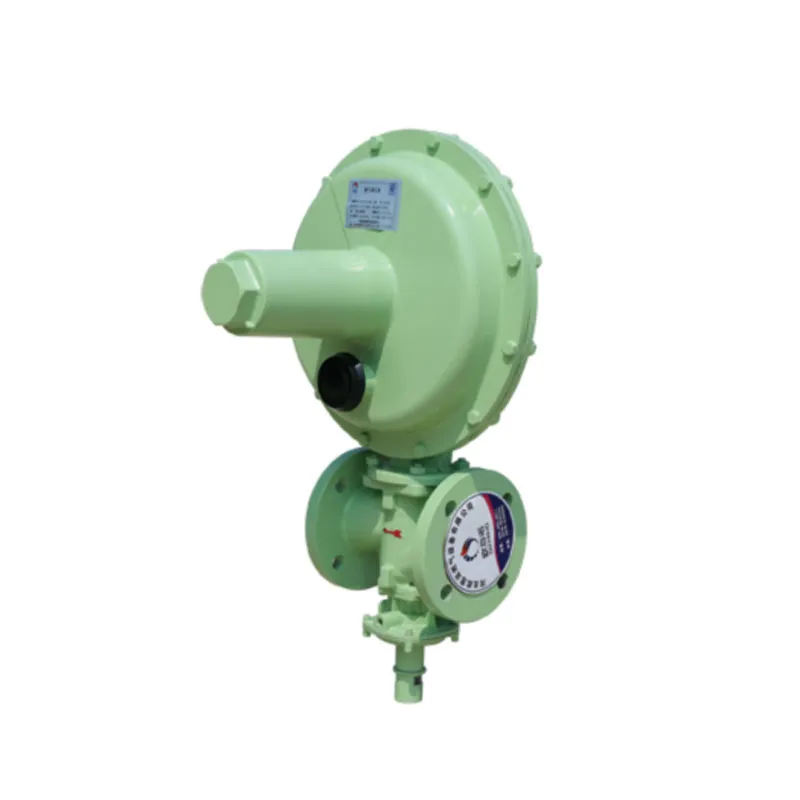
Dec . 15, 2024 08:06
Back to list
natural gas filter separator
Understanding Natural Gas Filter Separators
Natural gas filter separators are critical components in the processing and treatment of natural gas before it is transported through pipelines or used in various applications. These devices serve several important functions that ensure the gas's quality and safety by removing both solid contaminants and liquid hydrocarbons.
What are Natural Gas Filter Separators?
Filter separators are specialized equipment designed to separate contaminants from natural gas. They typically combine the functions of filtration and separation in one unit, accommodating both solid particles, like dust and rust, and liquid hydrocarbons such as water and oil. By effectively purifying the gas, filter separators help to protect downstream equipment, enhance energy efficiency, and ensure compliance with regulatory standards.
Components of a Natural Gas Filter Separator
There are several key components in a natural gas filter separator
1. Inlet Section This is where the raw natural gas enters the separator. The design of this section is critical as it influences the flow dynamics and efficiency of separation.
2. Filtration System The filtration component removes solid particulates from the gas. Depending on the application, various types of filter media can be utilized, including mesh screens or pleated filter elements.
3. Separation Chamber After filtration, the gas moves into the separation chamber. Here, the gas is allowed to flow through a larger volume, facilitating the separation of any remaining liquids. The reduction in velocity causes heavier liquid droplets to coalesce and fall to the bottom.
4. Outlet Section Finally, the cleaned gas exits the separator through the outlet section. The design should ensure minimal pressure drop to maintain efficiency.
5. Drain or Disposal System The separated liquids must be removed and often require a drainage system. This is vital for maintaining the operational efficiency of the filter separator.
How Do Filter Separators Work?
The operation of natural gas filter separators can be broken down into several sequential steps
natural gas filter separator

1. Gas Inlet Raw gas enters the separator and is directed toward the filtration media.
2. Filtration Solid contaminants are captured by the filtering media as the gas flows through.
3. Gravity Separation Once the solid particulates are removed, the gas enters the separation chamber. The change in velocity and increase in volume allow for liquid droplets to settle out of the gas stream due to gravitational forces.
4. Liquid Removal The separated liquids accumulate at the bottom and can be drained periodically or continuously, depending on the design of the separator.
5. Clean Gas Exit The purified gas is then directed through the outlet for further processing or transportation.
Importance of Natural Gas Filter Separators
The significance of filter separators cannot be overstated. They play a pivotal role in enhancing the overall quality of natural gas. By removing impurities, these separators help prevent corrosion and erosion of pipeline materials and equipment, which can lead to costly downtime and repairs.
Moreover, the removal of water and hydrocarbons is essential for meeting the specifications required by gas transmission and distribution systems. High-quality gas is less likely to form hydrates or cause other operational issues that could jeopardize safety and efficiency.
Applications of Natural Gas Filter Separators
Filter separators are utilized across various sectors that rely on natural gas, including
- Oil and Gas Production They are essential in the upstream processes where gas is extracted and initially processed. - Natural Gas Processing Plants These facilities use filter separators to prepare gas for liquefaction or further refinement. - Industrial Applications Many industries utilize natural gas as a fuel or feedstock, necessitating thorough filtration and separation to ensure smooth operations.
Conclusion
In conclusion, natural gas filter separators are integral components in ensuring the quality and safety of natural gas. They not only remove harmful contaminants but also enhance the operational lifespan of equipment in gas transmission systems. As the demand for cleaner energy sources continues to grow, the importance of effective filtering and separation technologies in natural gas processing cannot be overlooked. Investing in advanced filter separator systems will ultimately contribute to more efficient and reliable natural gas production and usage.
Latest news
-
Safety Valve Spring-Loaded Design Overpressure ProtectionNewsJul.25,2025
-
Precision Voltage Regulator AC5 Accuracy Grade PerformanceNewsJul.25,2025
-
Natural Gas Pressure Regulating Skid Industrial Pipeline ApplicationsNewsJul.25,2025
-
Natural Gas Filter Stainless Steel Mesh Element DesignNewsJul.25,2025
-
Gas Pressure Regulator Valve Direct-Acting Spring-Loaded DesignNewsJul.25,2025
-
Decompression Equipment Multi-Stage Heat Exchange System DesignNewsJul.25,2025

